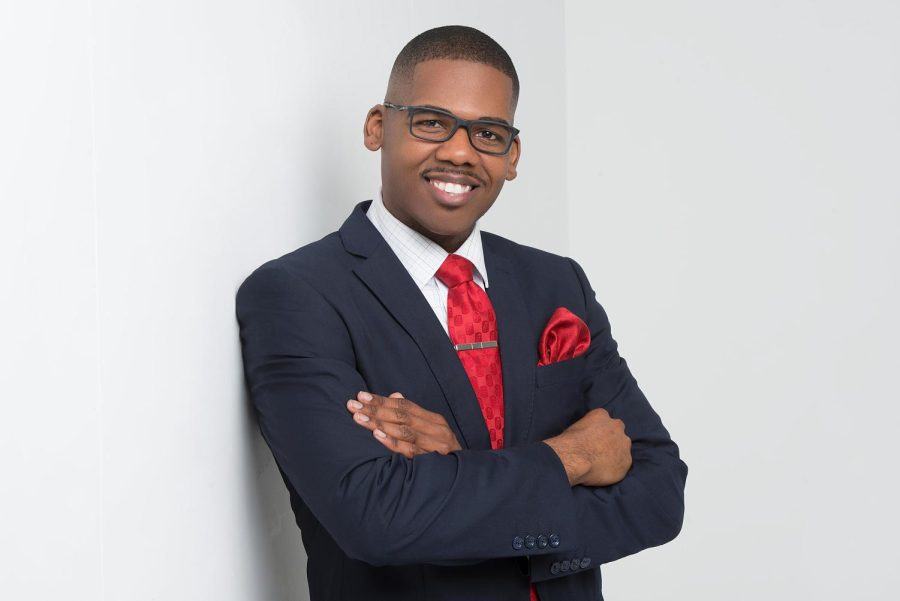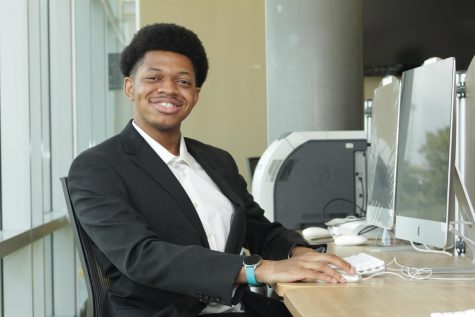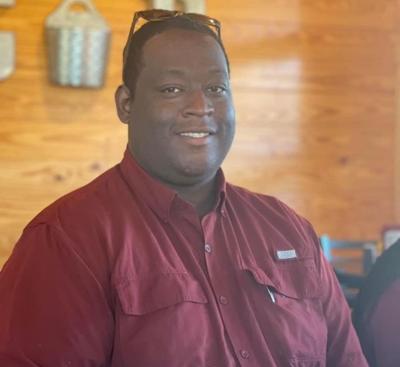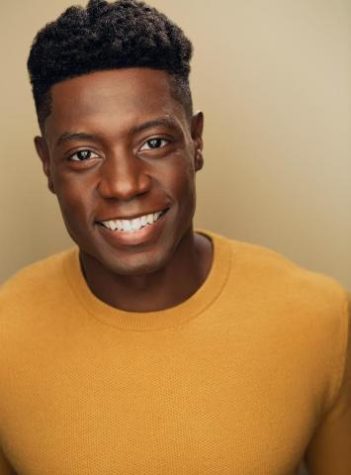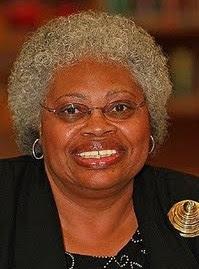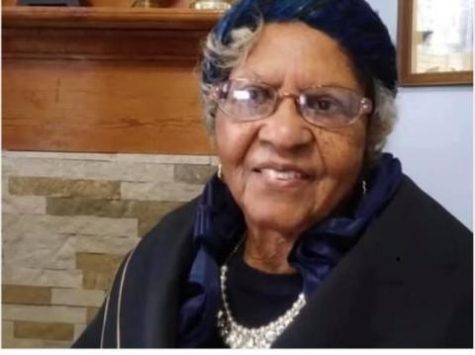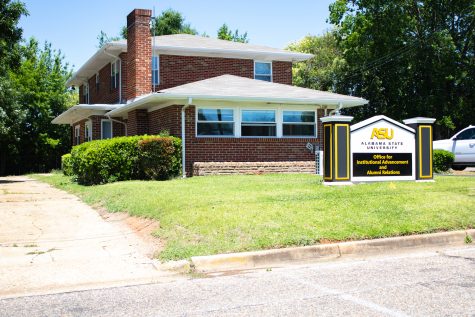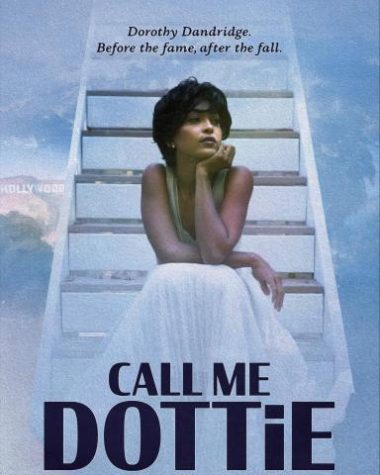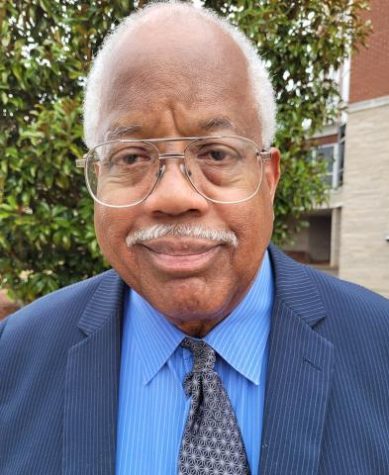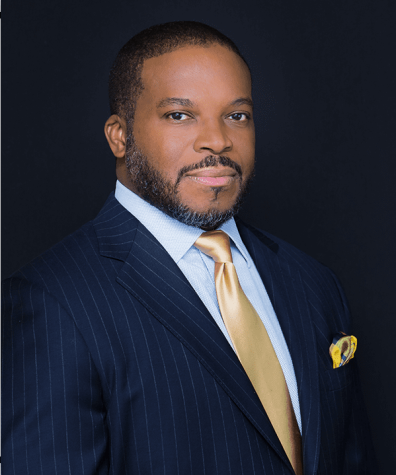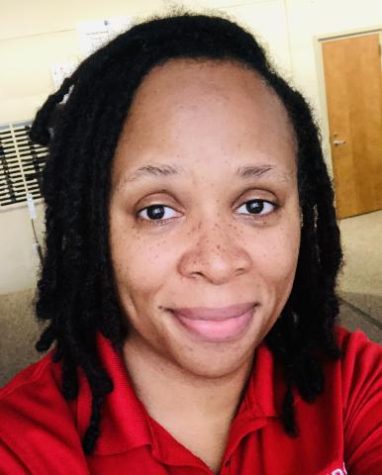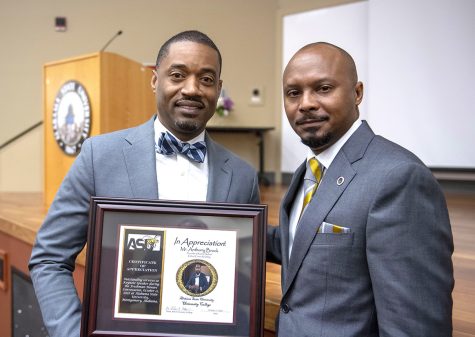Hurst prides himself on being a servant leader
Chick-fil-A franchise owner and Alabama State University alumnus Brandon Hurst exemplifies what it means to serve first and lead second, owning his first Chick-fil-A restaurant at the young age of 26.
January 16, 2022
The term leadership can be defined as the art of motivating a group of people to act toward achieving a specific goal or objective. However, for some people, leadership means much more than creating a vision and giving people an opportunity to buy into it. For servant leaders, leadership means pouring back and investing in your employees to help them grow both professionally and personally while putting your own self-interests on the back burner for the betterment of the company.
In any successful business, having a cohesive group of people bonded on shared values, characteristics and aspirations lends itself to a smooth and successful journey, and at a fast-food restaurant located at Flatbush & Atlantic, right across from the Barclay’s Center, one man’s trajectory drastically changed – all because of a chicken sandwich.
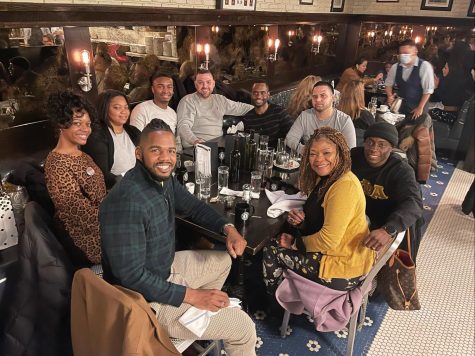
Chick-fil-A franchise owner and Alabama State University alumnus Brandon Hurst exemplifies what it means to serve first and lead second, owning his first Chick-fil-A restaurant at the young age of 26.
“Leadership is more than just calling orders and demands,” Hurst said. “A lot of people lose the essence of what leadership is about. Ultimately, leadership is about serving others. Leadership is actually a permission that’s given to you from the people that you want to follow you.”
Born in Atlanta, Georgia, Hurst was raised in a single-parent household with his older brother and permanently disabled mother. Hoping to bring in some extra revenue to the house, Hurst got his first taste of entrepreneurship by selling dill pickles out of his refrigerator for 50 cents to his local community.
“When I told my mom that I was selling her dill pickles for 50 cents, she smacked me across the face and said, ‘As good as those pickles were, you could’ve at least sold them for a dollar,’ so I remember running across the neighborhood asking people for my other 50 cents,” Hurst said.
Elevating from just selling pickles, Hurst decided to turn his house into the local candy store, which eventually led him to sell candy, chips and other junk food snacks at school. By the time he graduated from Riverdale High School in Atlanta, Georgia, in 2006, he had garnered over $300 in revenue daily, with several people working for him, sparking his entrepreneurial drive and competitiveness even further.
He credits his strong layer of tenacity and determination to the many adversities, obstacles and limited resources that he faced while growing up.
“I remember going to the Salvation Army and going to the summer camps and going to the local food pantries to pick up food or having to wear hand-me-down clothes and all of those different things,” he said. “I think going through what I went through has built a strong layer of tenacity. It has helped strengthen my mind.”
While at Riverdale High School, Hurst was physical education classmates with “Goodies” American singer Ciara, lived right next door to rapper Big Boi’s grandparents, and his best friend’s aunt at the time was Tiny, wife of rapper T.I., from the rhythm and blues group “Xscape.”
Along with being affiliated with numerous Black musicians, Hurst was involved in several extracurricular activities in high school. He was student body president, a section leader in the band, captain of the award-winning trial team, a member of the principal’s cabinet, and led the student broadcasting show in the morning while still maintaining a 4.0 and above GPA in honors and Advanced Placement courses.
Although it seemed like Hurst’s future was set up for success, he found himself lacking a sense of direction even after graduating in the top 10% of his class.
“It’s okay not to have it all figured out,” he said. “The day before graduation, I still did not know where I was going to college, but my grandmother told me I had a letter from Alabama State University and they offered me a full scholarship (tuition, room, books and board). I was shocked. No matter how the world perceived me to be on the outside, I was torn up and a mess on the inside, but I carried it well. So in hindsight, it’s definitely okay to say that you don’t have it all together.”
Once enrolled at Hornet Nation in 2006, Hurst began his studies as an accounting major, showcasing leadership all throughout the College of Business Administration (COBA) with plans to become a lawyer due to his argumentative and assertive spirit.
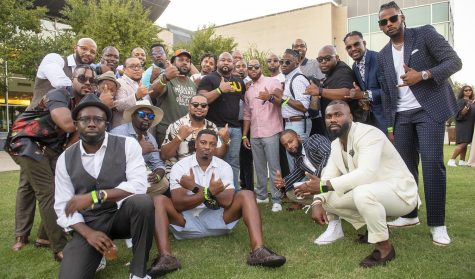
“I always liked to speak my mind, and I enjoy fact-finding and the chasing of hard cold facts and truths,” he said. “I am also the type of person who loves to marry my interests. I am a huge fan of theater, so where can you go practice and argue but still make it a little theatrical? The courtroom.”
Outside of the academic leadership showcased while pursuing his degree, Hurst became a co-head drum major of the Mighty Marching Hornets band during his sophomore year — a responsibility that was rarely given to lowerclassmen at the time. While being a member of the band, Hurst also became a member of the Beta Upsilon Chapter of Alpha Phi Alpha Fraternity, Inc. in 2008, where he served as the treasurer. He was also vice president of membership for the Kappa Phi Chapter of Alpha Kappa Psi Professional Business Fraternity, Inc., and was a member of the W.E.B. DuBois Honors Program.
Throughout his collegiate career, Hurst fondly remembers all the remarkable and historic halftime band performances and the powerfully bonded brotherhood with his line brothers that still stands today, 14 years later.
“The adrenaline rush you would get performing in front of 70,000 fans and just to hear the crowd going wild, that was a big highlight,” he said. “I also enjoyed the long-lasting friendships that I had every year. Actually, my line brothers and I have a tradition where we go on a long trip, and this year we’re going to Costa Rica. So having that bond is so unique and special. I know their wives, their children, and so just building relationships in college was another huge highlight.”
With Alpha Phi Alpha Fraternity, Inc.’s seven jewels of foundation being based on scholarship, fellowship, good character and the uplifting of humanity, those qualities would soon be of advantage to Hurst’s future career.
Working as an overnight supervisor at Taco Bell his sophomore year with no plans on making fast food his lifelong profession, Hurst was notified by his fraternity brothers that the Chick-fil-A, located on Eastern Boulevard in Montgomery, Alabama, was hiring and they believed Hurst would make a great addition. Initially turning down the suggestion to apply, Hurst eventually gave in to the peer pressure given by his fraternity brothers and began his long and fruitful career at Chick-fil-A.
“None of this was in my plans,” he said. “I was truly a college student, looking to pay the bills. That was it.”
As most fast-food restaurants can be deemed stressful, tiring and cumbersome, especially while juggling college life and classes, Hurst assures that Chick-fil-A is on a totally different scale, calling it a high-end quick-service restaurant.
“The culture at Chick-fil-A is certainly different,” he said. “I didn’t have to worry about being cursed out by the customers like I was at McDonald’s. Chick-fil-A was never a toxic environment for me. It was just (and is) different.”
While Hurst had several extracurricular activities, he also faced some challenges that affected his spring 2010 graduation date due to his overwhelming schedule and workload. As a member of the W.E.B. DuBois Honors Program, students are required to complete a capstone project in order to receive their honors degree, and, unfortunately, Hurst started to fall behind in completing the honors course curriculum. Though this was disappointing for him as he would graduate a semester later, he realized the blessing in disguise.
“I learned accountability,” Hurst said. “Because I was not listening and paying attention to the signs that said, ‘Brandon, you’re doing too much.’ So it was very difficult for me to sit in front of my guidance counselors and hear them say, ‘You’re not going to finish this program in time just like you thought you were.’ But it made me realign my priorities.”
From his four-year commitments to numerous organizations and the College of Business Administration, Hurst encountered a number of influential instructors and individuals that shaped his college experience significantly. He recognizes the former W.E.B. DuBois Honors Program Director, Shirley Jordan, Ph.D., Band Director, James Oliver, Ed.D., and Communications Administrative Secretary, Rhuhaiminimia Laffitte as some of the driving forces behind his accomplishments, with Jordan being the primary cause for his aspirations of becoming a lawyer changing to a full-time career with Chick-fil-A.
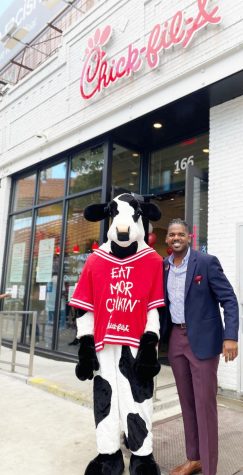
As Hurst approached graduation, he faced a huge dilemma. For his excellent academic work in COBA, the university offered him a full scholarship to continue his education, getting him one step closer to law school and becoming a lawyer. However, he also had the opportunity to move to Chicago and undergo Chick-fil-A’s Leadership Development Program free of charge, while also learning the ins and outs of the company. Hurst ultimately decided to take the latter, thanks to a book called Take The Risk by Ben Carson given by Jordan.
“I am walking to class, and Dr. Jordan stops me and says ‘You’ve been on my mind lately,’and she reaches into her purse and gives me this book,” Hurst said. “When I tell you I read that book, I was in tears because she didn’t even know that by her giving me that book, she gave me the courage to make the decision that I needed to make. To say ‘No’ to Alabama State on a free master’s and to pack everything I own and drive 14 hours straight to Chicago to start a brand-new life in a city that I knew no one.”
In 2010, Hurst received his Bachelor of Science in accounting and business management and found himself in Chicago working his way up the ranks of Chick-fil-A and learning everything there was to know in the leadership development program on how to run a successful business.
Though moving to a different state with no family or friends was undoubtedly challenging for Hurst, he also found it to be stimulating as he was taking on a new journey. While the journey did seem fun temporarily, he hit a point where the constant working and no social life took a mental toll. To combat that issue, he took the initiative to post on Facebook inquiring about ASU Chicago alumni, and to his surprise the following day, several people responded to his post, giving him that perfect balance between his work life and private life.
Through the inviting and welcoming spirit that the Hornet Nest possesses, Hurst deeply appreciates the family-like atmosphere and the special bond that being a Hornet offers.
“It just goes to show that ASU Hornets are all across the country,” he said. “And now that I live in New York, I do the same thing and start looking for those ASU folks. ‘Oh, you up here?’ It just seems like ASU is that common denominator. And because we’re all bred through building relationships, family and love, those are the effects that you can’t pay to go get at a PWI where there are 80,000 students.”
Still deciding to get his master’s degree while simultaneously working at Chick-fil-A in Chicago as a director of operations full-time, Hurst enrolled at Devry University in 2010 to obtain an MBA in finance, slightly altering his pathway to align with his entrepreneurship career. Even through a full-time schedule and a rigorous MBA program, Hurst’s determination, drive and passion allowed him to successfully succeed in his endeavors, receiving his MBA in 2012 from Keller Graduate Management School.
“I was working like 70-to-80-hour work weeks and my team members would come to the restaurant and find me sleeping in the office from the night before because I was in my MBA program,” he said. “I knew if I went home, my homework wouldn’t have gotten done, so I stayed in the office and did my work.”
While Hurst initially joined the Chick-fil-A leadership development program to just move up the corporate ladder with no intentions of becoming a franchise owner, things began to shift once he became fully immersed in the culture and core values of the company and learned that the makings of a true leader were already deep inside of him.
“When you look back at the time that I was a drum major and leading all of these different student organizations, the makings of a leader was already there,” Hurst said. “It just took Chick-fil-A to bring that out of me a little bit more and to really show me what I can do if I harness that power, if I harness those attributes and characteristics.”
One day while driving down the highway in October 2014, Hurst received an exciting call informing him that he was selected to become a Chick-fil-A franchise owner, opening his first location in Baltimore (the city’s first downtown location) in April 2015 at 26. Yearly, Chick-fil-A receives over 30,000 applications for new franchises. Only 80 to 100 applicants are selected, establishing Hurst as one of the top employers and leaders in the Chick-fil-A work environment, surpassing millionaires, retired Pentagon employees, and presidents of fortune 500 companies.
With such an astounding accomplishment at such a young age, Hurst was faced with adversity and challenges as the opening of his first franchise was in the midst of the Freddie Gray protest in downtown Baltimore. Even amid a potential setback, he stood tall. He remained vigilant in ensuring that his employers still had a leader who could handle various situations and circumstances and turn them into lessons.
“Through the protest, I was able to keep my composure and understood that I got 60 to 70 other individual team members that are relying on my leadership to keep this ship going and headed in the right direction,” he said. “I made plenty of mistakes. But that’s the beauty about giving yourself grace. That’s the beauty of knowing who you are and being intentional about it because sometimes you may not always have the answer, but you remain diligent in understanding your purpose and walking in your why. And so that was very important for me.”
As a young Black male business owner, certain outside pressures could form and cloud your judgment. Still, Hurst felt he had a greater responsibility of showcasing and highlighting that people of color can walk in the same level of excellence as their white counterparts, no matter the circumstances, while also breaking the racial stereotypes.
“I wanted to show my people that I could aspire and accomplish so much more than just what you saw on TV. I could be more than a rapper. I could be more than a lawyer. I can be more than an NFL player. It was like, and that’s not to take away credit from any of those other great individuals. But it was like, learn how to be in your own lane and be excellent in that.”
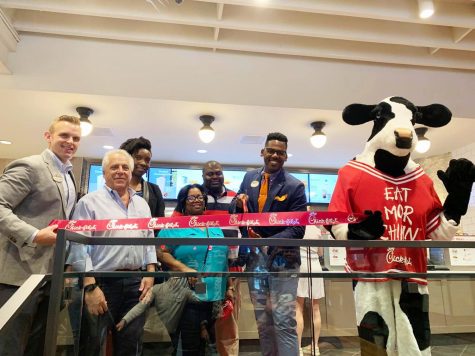
In addition to breaking the racial stereotypes, Hurst also had the responsibility to break out of the typical suburban mold in which Chick-fil-A restaurants are usually located. Tipping the scales to the totally opposite direction, he wanted to open a location in a populated downtown area with no drive-thru, only walk-ins.
Fast-forward to 2019 and Hurst was awarded that dream, and his restaurant currently sits at a four out of five-star rating on Google reviews with not only several positive remarks but famous celebrities and athletes who stop by for a quick bite and friendly service at the only Chick-fil-A in Brooklyn, New York.
From Steve Nash, the coach of the Brooklyn Nets, to rapper Biggie Smalls’ daughter, T’yanna Wallace, to hosting the 2021 MTV VMAs, Hurst’s Chick-fil-A franchise seems to be the perfect location for a wide array of special guests to stop by.
“It’s funny because every time I hear like a loud scream, it’s either ‘Okay, what’s happening?’ or we got some type of celebrity that’s walking in,” he said. “But that’s what I love about the location, because you just never know.”
Out of all the profits made, celebrity appearances, and chicken sandwiches eaten, Hurst genuinely appreciates and finds the most rewarding aspect of owning a Chick-fil-A franchise to be the various influential impacts and factors that benefit his employers wholeheartedly.
“There is nothing glorious about making waffle fries and delicious handspun milkshakes,” Hurst said. “However, what is life fulfilling about the work that I get to do is the fact that I helped someone pay off college debt. Or the fact that the employment opportunity I gave was a difference-maker between someone having a roof over their head or someone sleeping in a shelter.”
Although Hurst is not the first Black man to own a Chick-fil-A and will do everything in his power to guarantee that he is not the last, representation is a crucial component in ensuring the next generation of leaders and entrepreneurs. He has seen firsthand how representation not only truly inspires young minds but motivates them to know that the opportunities are limitless.
“I have kids because all they see is the basketball players, the celebrities and the rappers. They are like, ‘Wow, it’s a Black man,’” he said. “A young Black man owns the only Chick-fil-A in Brooklyn across from the Barclays Center. That is rewarding. I got kids that travel all the way from New Jersey just because they want to work in my organization, and to me, that’s my ‘why.’”
Looking back on his well-accomplished yet still flourishing career, Hurst can attest that his time at ASU not only prepared him for the real world but provided him with the necessary tools, skill sets and knowledge, even through the limited resources, to capitalize on the numerous opportunities that are available while building bridges that can take you anywhere in the world.
Cumulating over 13 years of hospitality experience, Hurst’s passion for serving others inside and outside the restaurant is highly acknowledged by numerous accolades and honors, including the Baltimore Sun’s Top Workplace for 2015, the Martin Luther King, Jr. Award for Outstanding Community Service, the Alpha Phi Alpha Fraternity, Inc.’s Outstanding Entrepreneur Spirit Award, and the WETATi’s Entrepreneurial Trailblazer Award. He is currently a member-at-large for Alpha Phi Alpha Fraternity, Inc., and participates in the Gentlemen’s Factory, located in Brooklyn, New York, where Black and brown professionals and entrepreneurs create a collaborative space that allows for maximum growth and a sense of community.
Outside of his professional leisure and leadership roles, his hobbies include traveling, listening to music, riding bicycles, and the arts. He enjoys going on long excursions on his bicycle if he has free time, combining his love for music and traveling into one.
“I love long bike rides, on any given day, and just busting out 50 miles,” he said.
To Hornet Nation, he emphasizes the importance of applying action to one’s dreams and maximizing the given effort to achieve them, as Hurst is the epitome of his advice.
“Just don’t dream big, be big,” Hurst said. “And what I mean by that is, essentially, if you’re going to put forth the effort to something, go all-out for it, don’t just half do it. We don’t talk about that in the classroom. Some of the things that I’ve learned in my life and after undergrad, I’m like, ‘Man, I wonder if I would have known this in undergrad. How much further would I be?’”
To students pursuing business administration and aspiring business owners, Hurst encourages those to remember that money is not everything in your pursuits and should only be a direct result of the hard work, sacrifice, and dedication you put in to achieve your goals.
“Don’t just chase the dollar,” he said. “Chase passion, chase purpose and let the dollar be the result of you chasing the passion and the purpose.”


